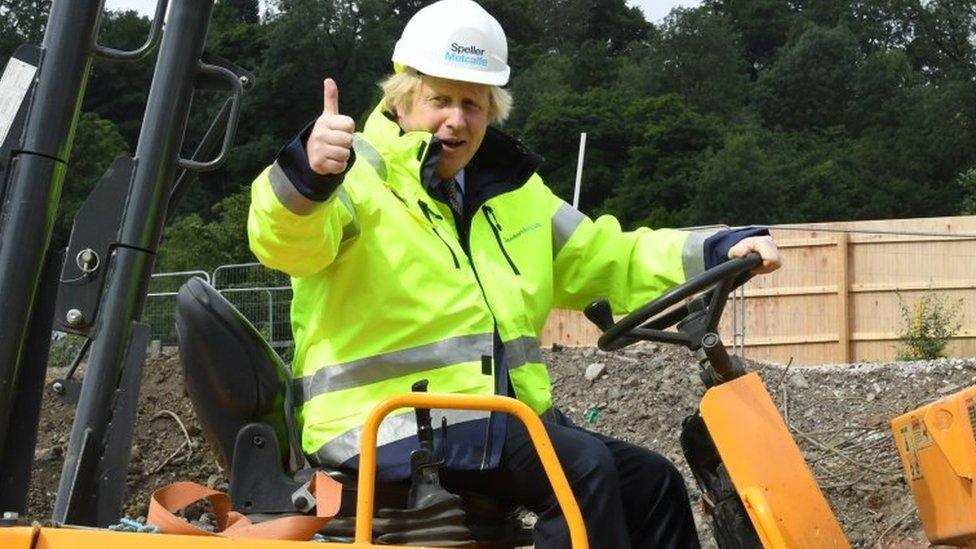New homes to get 'automatic' permission in England planning shake-up
- Published
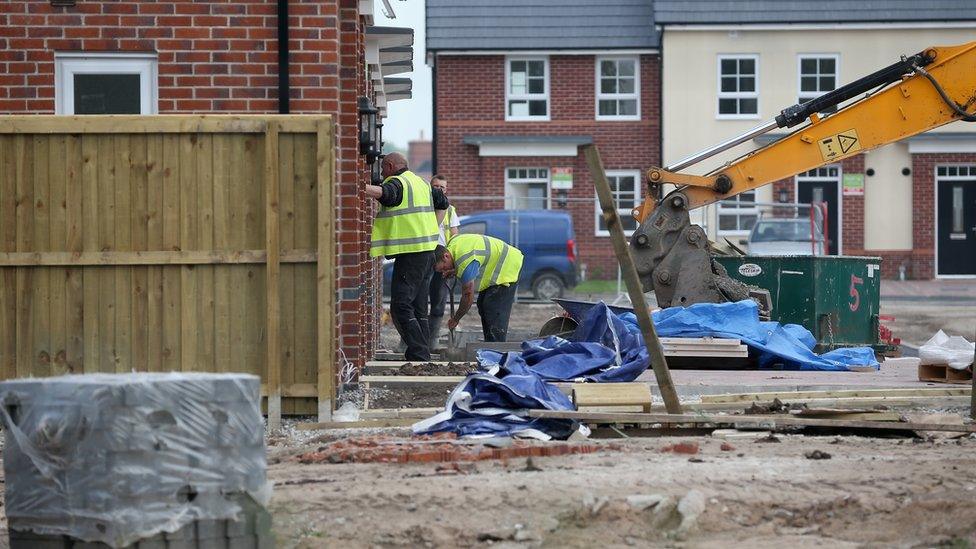
New homes and hospitals will be granted "automatic" permission to be built as part of sweeping planning reforms in England, the housing secretary says.
Robert Jenrick announced a "permission in principle" will be given to developments on land designated "for renewal" to speed-up building.
It comes after the PM pledged £5bn to "build, build, build" to help soften the economic impact of coronavirus.
Shelter has warned against any reforms that lead to "bad-quality" housing.
The homeless charity has said 280,000 homes received permission in England between 2011 and 2016 but were never built.
Writing in the Sunday Telegraph, external, Mr Jenrick said that, under the new rules, land will be designated in one of three categories: for growth, for renewal and for protection.
And he insisted: "We are cutting red tape, but not standards."
However, James Jamieson, the chair of the Local Government Association, said the idea that planning was a barrier to house building was "a myth".
"Nine in 10 planning applications are approved by councils, while more than a million homes given planning permission in the last decade have not yet been built," he said.
"Only last week the government's own independent report warned of the worse quality of homes not delivered through the planning system. We urge the government to heed these warnings and not further sideline the planning process."
The changes being brought forward this week are expected to only impact England, as national planning policy is devolved to administrations in Scotland, Wales and Northern Ireland.
Mr Jenrick said that the country's "outdated and cumbersome" planning system had contributed to a generational divide between those who are homeowners and those who are not.
And he claimed that, under the existing guidelines, it takes an average of five years for a "standard housing development" to go through the planning system.
BBC Reality Check said there had been criticism in recent years of the amount of time it takes to get planning permission.
But it also noted that many developers secure planning permission and then do not immediately build.
In 2017-18, 382,997 applications were granted, which would be more than enough to meet the government target of 300,000 new homes a year.
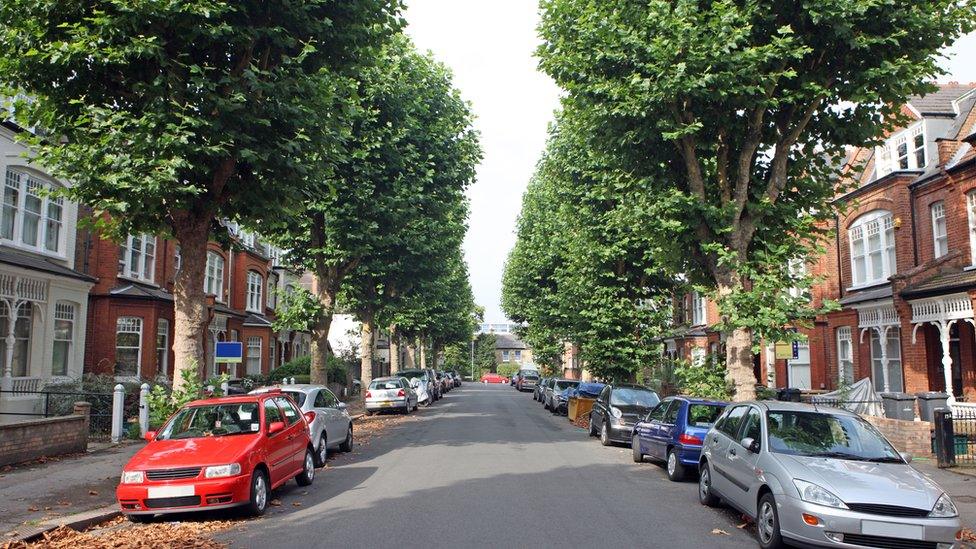
Tree-lined streets will be "provided for in law", Mr Jenrick pledged
"Land designated for growth will empower development - new homes, hospitals, schools, shops and offices will be allowed automatically," Mr Jenrick said.
However, he did not specify the criteria for designating land under these proposals.
Areas of outstanding natural beauty and the green belt will be protected.
"I am completely overhauling the system so we can build more good quality, attractive and affordable homes faster - and more young families can finally have the key to their own home," Mr Jenrick added.
He said the new plans will also focus on quality and design, drawing on inspiration from the idea of design codes and pattern books that built the picturesque city of Bath, model village of Bournville and wealthy district of Belgravia in London.
Eco-friendly homes with new spaces and parks nearby would be built, he added, saying local authorities will move away from placing notices on lampposts towards an interactive online system.
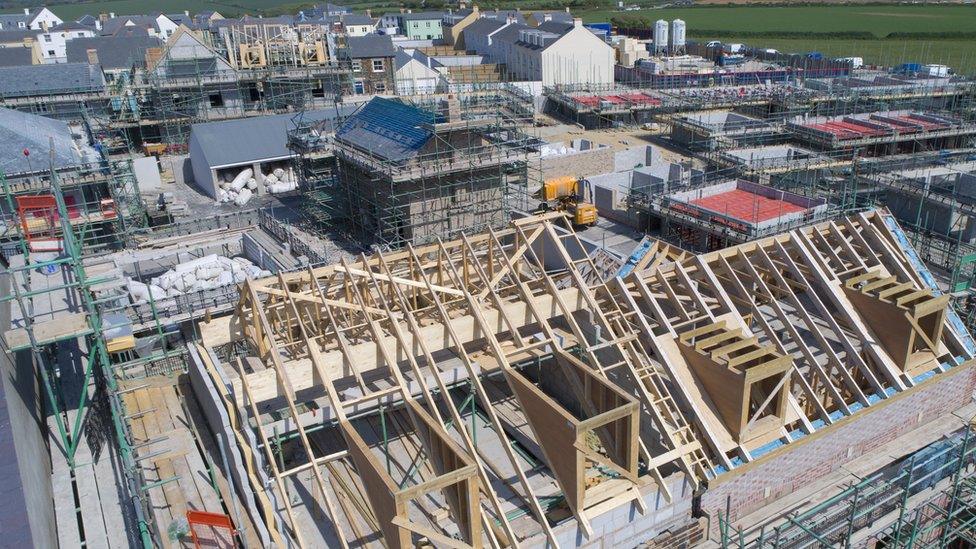
Housing campaigners have called for reforms to protect the quality of new homes
The Federation of Master Builders, which represents small traders, has previously said construction output fell to historic lows due to the coronavirus pandemic and that streamlining planning applications would bring forward new developments.
Mr Jenrick said the reforms would "create thousands of new jobs, from bricklayers to architects".
'Build, build, build'
In June, Boris Johnson vowed to "build, build, build" to help Britain bounce back from the pandemic, promising a £5bn package to build homes and infrastructure.
The PM promised the "most radical reforms" of the planning system since World War Two.
The Conservative Party has repeatedly pledged to "build and fund" 40 new or rebuilt NHS hospitals before 2029.
The UK's planning system was effectively established in 1947, two years after the end of the war, with the Town and Country Planning Act.
Mr Jenrick's announcement comes a few weeks after he came under fire for his decision to grant planning permission for a £1bn property scheme in east London just before changes to local planning rules and two weeks prior to the developer donating £12,000 to the Conservatives.
The secretary of state denied any link between the events, but accepted that his decision to approve the development was unlawful.

FEELING LOST?: How to start thinking about the future
'HOMELESS HOTEL': Lockdown life inside emergency accommodation

- Published30 June 2020
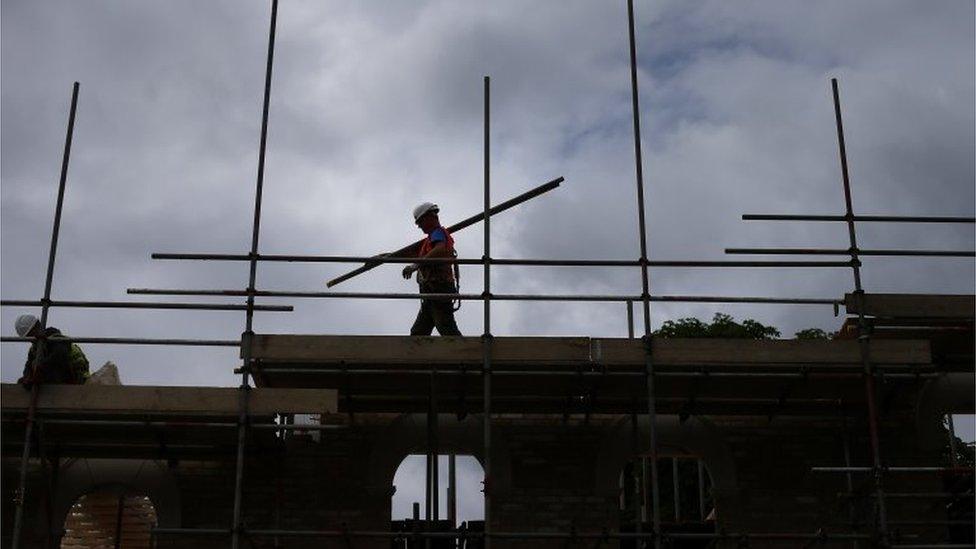
- Published30 June 2020
